CWers Gather in Chicago to Celebrate, Reflect, and Connect
We report on last weekend's National Gathering to celebrate 50 years of St. Francis CW; also, Archbishop Wester addresses CWers, Brisbane CW bikes for Palestine, and the poetry of washing windows.
The Main Event…and the Margins
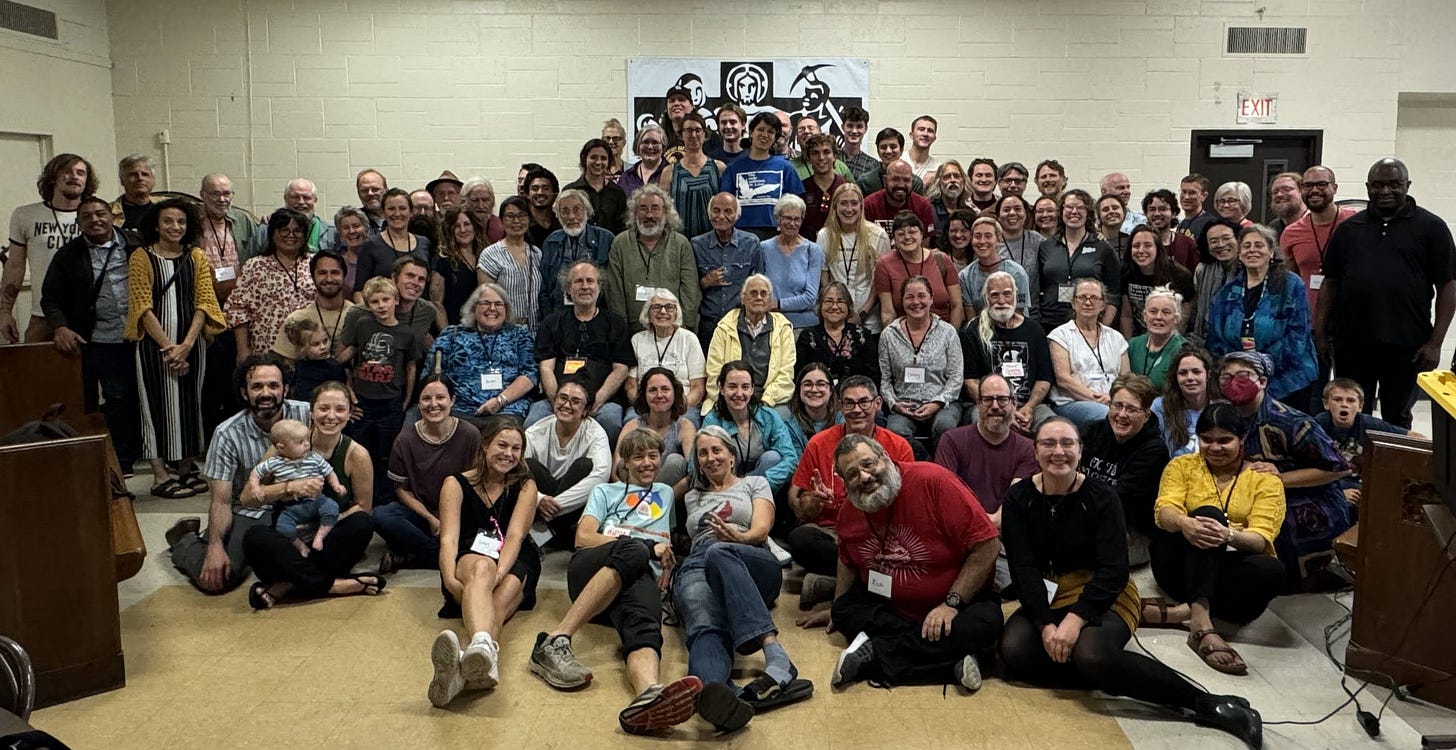
After missing Sugar Creek a month ago, I was worried that I might miss the Catholic Worker National Gathering in Chicago, too, after one of my kids came home sick with COVID ten days before the gathering. Fortunately, he diligently masked and we opened up all the windows, and no one else caught it. (Does this qualify as a Dorothy Day miracle?) Thursday afternoon, I was on an Amtrak headed to Chicago.
Being a Christian anarchist movement, the Catholic Worker has no set schedule for its gatherings; basically, people get together when a community feels inspired enough to do all of the work of hosting one. This year’s gathering was organized by St. Francis Catholic Worker House in Chicago to help celebrate its fiftieth anniversary. St. Gertrude Catholic Church generously provided the venue; some Alexian Brothers who are friends of the community coordinated (and maybe paid for?) the meals, which were outstanding; and the whole St. Francis Catholic Worker extended community pulled together to provide hospitality.
About two hundred people attended the gathering over the course of the weekend, including many longtime veterans of the movement: Kathy Kelly, Frank Cordaro, Brian Terrell, Ann Suellentrop, Becky McIntyre, Sarah Fuller, Theo Kayser, and Lincoln Rice were just a few of the people hosting roundtable discussions. (See the full schedule here.) It was the sort of event where you want to go to all the things, even though there is no way you can. I did my very best, but by 5:30 on Saturday, I was done. I ducked out and went on a brisk (and sweaty—it was hot!) walk down to Lake Michigan, missing the group photo.
All of the talks, panel discussions, and roundtables were amazing, and I’ll be sharing more about them here in Roundtable in the coming weeks (I have nearly ten hours of audio recordings to go through).
As awesome as it all was, many of my most meaningful moments from the gathering took place on the margins of the main event. One of those moments came on Saturday evening, when I ran into an old Catholic Worker acquaintance, Mike Sawin.
Mike had been a live-in volunteer at the Winona Catholic Worker briefly at the same time I was there thirty-some years ago. I hadn’t seen him since then, so it was fun to catch up and learn that he is now living in St. Cloud, Minnesota. There is currently no Catholic Worker community there, but he is doing the work anyway: he and his wife have fostered nine kids, including one who has lived with them for five years, and Mike spends his mornings helping people out.
“I don’t work outside the home, and so I have plenty of time for other people in my life who are shut-ins who need a ride or somebody to shop for them. And I just perform service for everybody that I encounter,” he told me. “And they say, how do you do this? And I say, well, God gives me all this time so I can go shopping for you, I can pick you up and drive you. I have time and I have resources, and all of that comes from God. And in some weird mystical way that I still don't understand, you’re like Jesus for me. That’s all Maurin and Dorothy Day.”
In the coming weeks, I’ll share some of the “main event” talks and roundtable discussions in this newsletter. But I hope to also share some of these encounters from the “margins” of the gathering—because, as we learn over and over, the margins are often where you find the most beautiful, amazing, creative work being done by the Spirit.
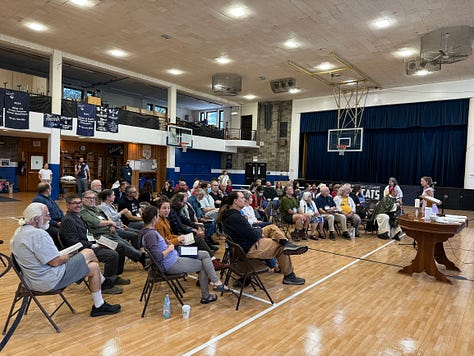
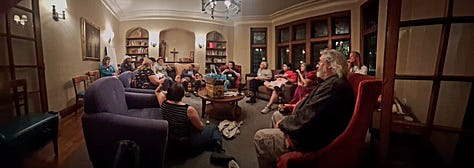
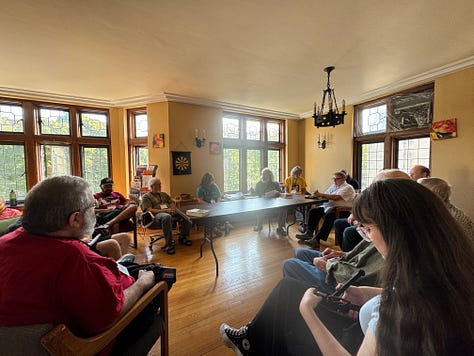
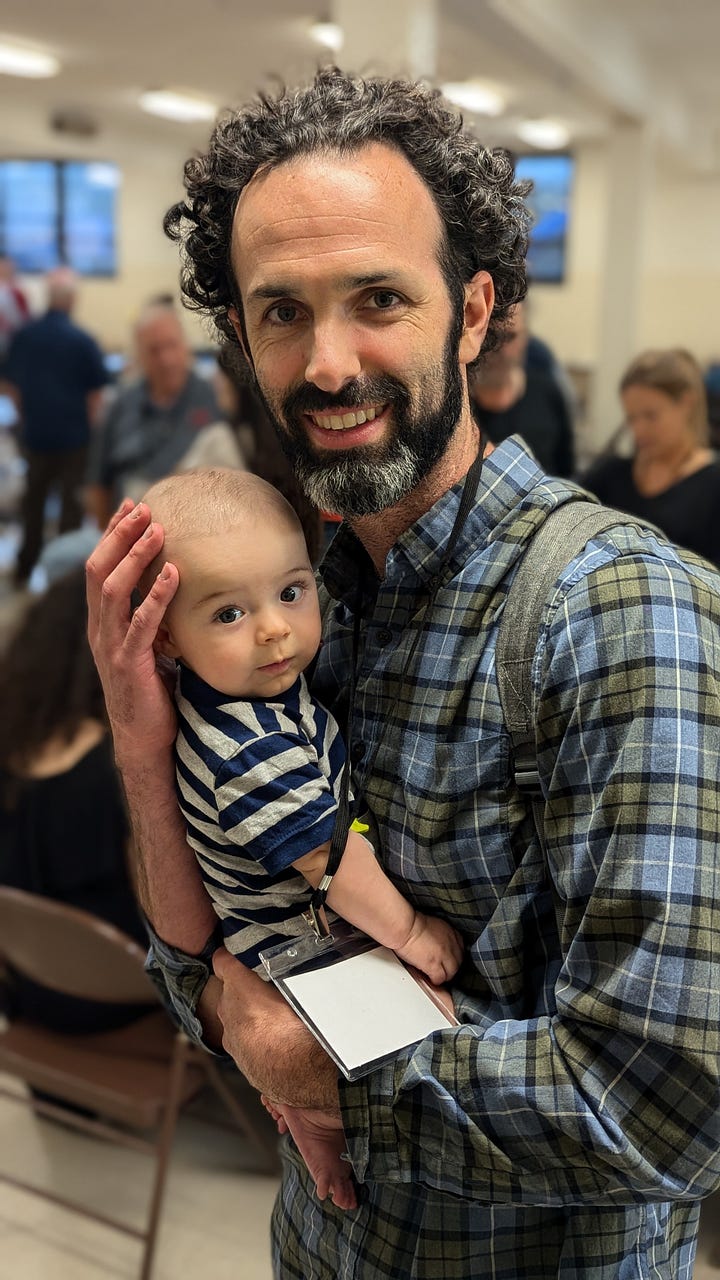
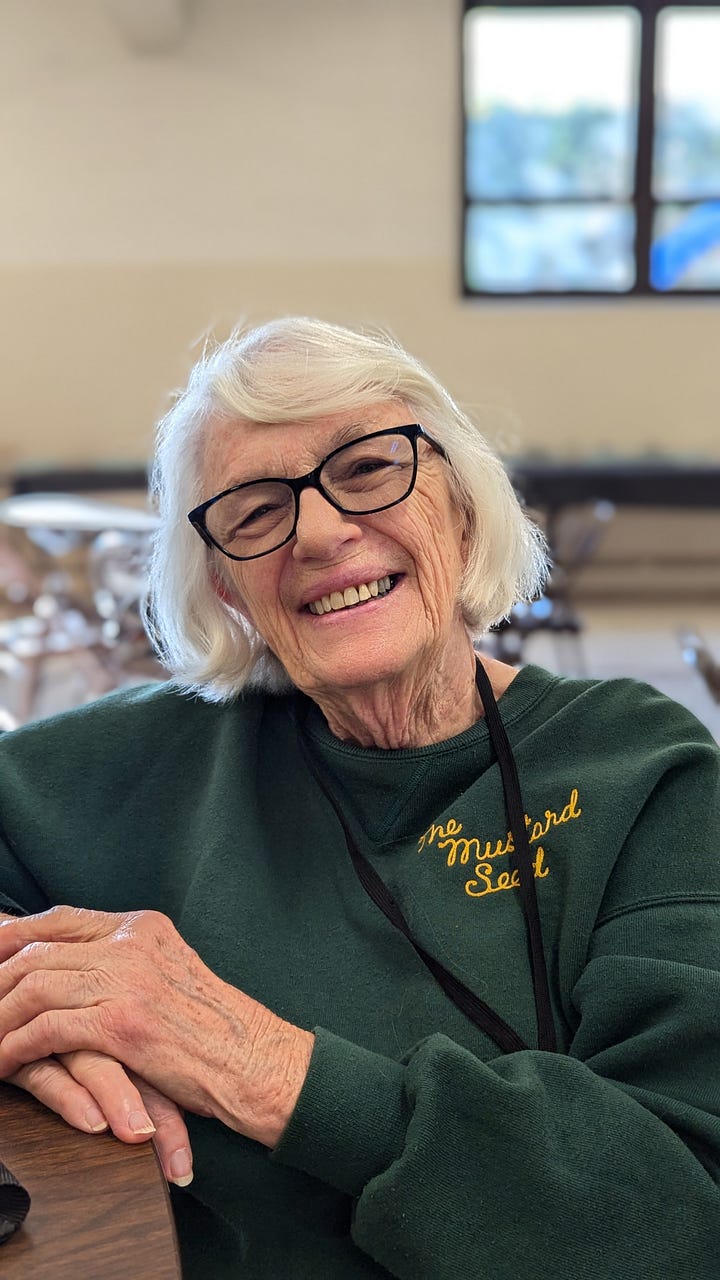
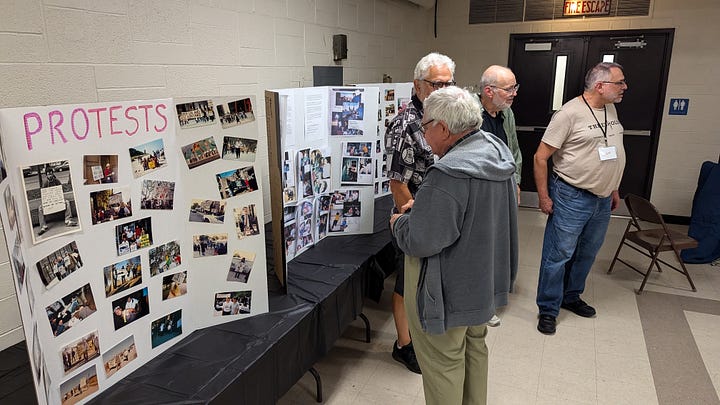
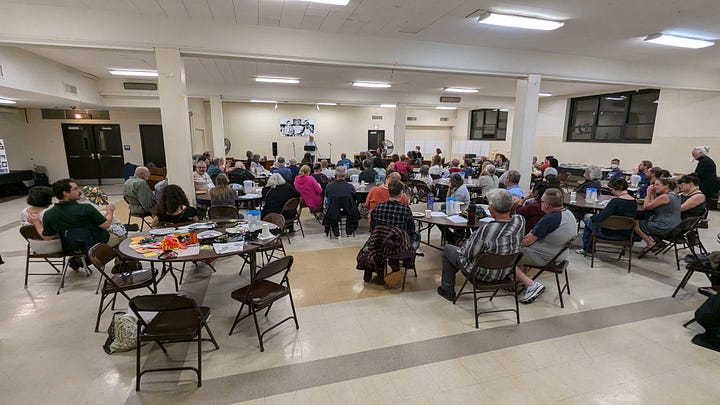
FEATURED
What Keeps a CW Community Going for 50 Years? Maybe the ‘Spirit of the House’
As they prepared to celebrate the fiftieth anniversary of the founding of St. Francis Catholic Worker, the current live-in community was fortunate to be gifted with a packet of old At the Door newsletters from the 1980s. Going through those old newsletters, Dan Justman said he recognized the “spirit of the house” present in the thoughts and sentiments of previous generations of community members.
“You get this wonderful sense that even without a charismatic founder, the house has somehow always been a magnet for truly compassionate people who just somehow keep finding this place,” he said. “It blows my mind to be sitting in the living room downstairs reading these newsletters and thinking that this is the living room where these newsletters were probably written. The people in these stories were sitting right here in the same spot that I was.”
Appropriately, last weekend’s Catholic Worker gathering and celebration featured many stories told by former community members. We’ll be running some of the highlights next week.
This week, though, we’re going to focus on the current live-in community’s take on their experience at the St. Francis Catholic Worker—affectionately known in the neighborhood as “the White House.” Several months ago, Quinn Smith, Dan Justman, and Daniel Delapava sat down with Theo Kayser and Lydia Wong to talk about plans for the gathering and their experience bring part of the community. The excerpt we’ve chosen focuses on the “spirit” that animates the house. Please note that this is an abridged excerpt, meaning it has been cleaned up for clarity and brevity; you can read the unabridged transcript or listen to the full podcast at the link below.
Lydia Wong: Can you describe a little bit of what St. Francis House is like? It’s one of the fun things about this, doing this podcast is being able to just sort of hear the varieties and different flavors of the different houses around the country.
Quinn Smith: I think St. Francis House has a very active and colorful community, both the people that are living here and our guests on a daily basis…. And I’ve already seen a lot of good relationships and friendships forming and developing here. There’s a lot of people here who are struggling or living on the streets. There’s a lot of people who are just looking for a place that they can hang out and meet people without having too many expectations or too much formality to it.
Dan Justman: Having been here (as a live-in volunteer) a couple times, you know, it’s interesting how the live-in community and especially the guest community has changed just in terms of who’s here, but the mission hasn’t changed, even though there’s been some adjustments to accommodate capacity as far as days that we’re open. And throughout those changes, there’s still this core feeling that remains, no matter who’s running the house or what conglomeration of guests live here….
And actually, one of the things that’s been really remarkable about this past year compared to the first time I was here is just the sheer number of visitors that we get on days that we’re open. You know, one of the central pillars of St. Francis’s hospitality has been the Monday night dinner. And the vibe on a Monday night dinner, it’s like a party. We’re regularly getting 30, 40 plus people coming by from the nearby tent encampments over by Lakeshore Drive.
And it’s amazing how even bringing in people from those tent situations, it’s not to say that this is like a perfect place. It’s not to say that this place is a utopia free of conflict or anything, but it blows my mind consistently how little conflict comes up in this space. And I think that just says something about some kind of good spirit that exists here at this house. People—from the visitors to the guests to the Workers—must recognize, maybe subconsciously, maybe consciously, this is a place of equals. This is a place to be, and to be yourself. And we have some really good times with the visitors who come and, from what I can tell, can’t always be themselves at some of the other agencies in the neighborhood.
I think that’s a really amazing thing.
Quinn Smith: Being able to just go to a house and hang out, go in and out of the house…to have, like, a place you can go to without having to pay, without having to have some sort of status, or without having to be part of some sort of club, you can just come in at any time and it’s open and it’s inviting. I think a lot of people just appreciate that on a personal level.
Daniel Delapava: Yes, after the pandemic, when we reopened the house for visitors, this crowd from the tent cities nearby started to visit us. It was a couple of them one day; next day, four or five; next day, 10 or 15; next day, full house, 40 people. Then we were opening the house every day, Sunday to Sunday. And it was 30, 40 people every day. That was very intense, but that was just coming out of the pandemic. So it was also like a refreshing flow of light coming into the house.
And they have been coming since then, and we have been able to establish very personal connections with them. You know, we know them, they know us very well, I will say. And it’s fun. For some reason, they call us “the White House.” So you can hear them speaking over the phone like, “Hey, Jennifer, I am at the White House. Are you coming? OK, see you here at the White House.” So they love coming to the White House, hang out here, take a shower, have food, have coffee, more coffee, more coffee, take a nap. And just hanging out is kind of like a low-intensity party every time. And it’s fun.
I personally enjoy living in community. I don’t see myself living alone in an apartment. That doesn’t make any sense to me at all. Of course, community comes with challenges. But I will not change community living for anything. And yes, there is something unique here at this house, at Francis of Assisi House. Sometimes we call it “the spirit of the house.” Sometimes I refer to that like “the angel of the house.” It’s interesting to know that, as we are celebrating the 50 years of the house, that this house was not started by a charismatic leader who lived here for many years. Some people talk about 20 different generations of Catholic Workers living at this house over 50 years.
So there’s a lot of changes, but somehow the house has not just survived, but sometimes flourished, too. Well, perhaps it’s the angel of this house that keeps it running.
You can listen to the podcast or read the full, unabridged transcript at CatholicWorker.org.
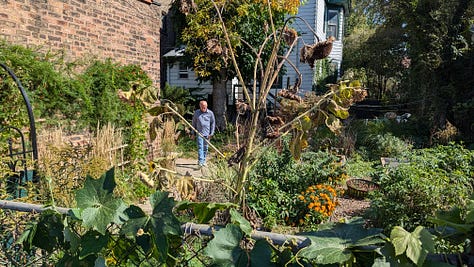
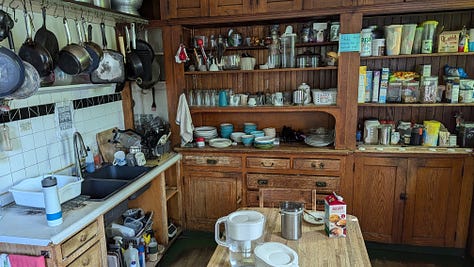
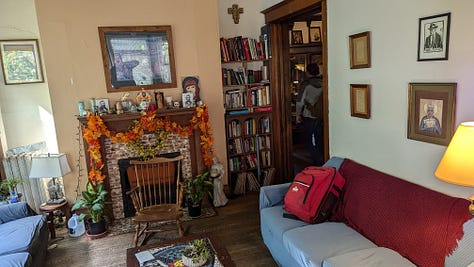
‘Who Are the Terrorists?’ CWers Grapple with Consequences of U.S. Involvement in Middle East
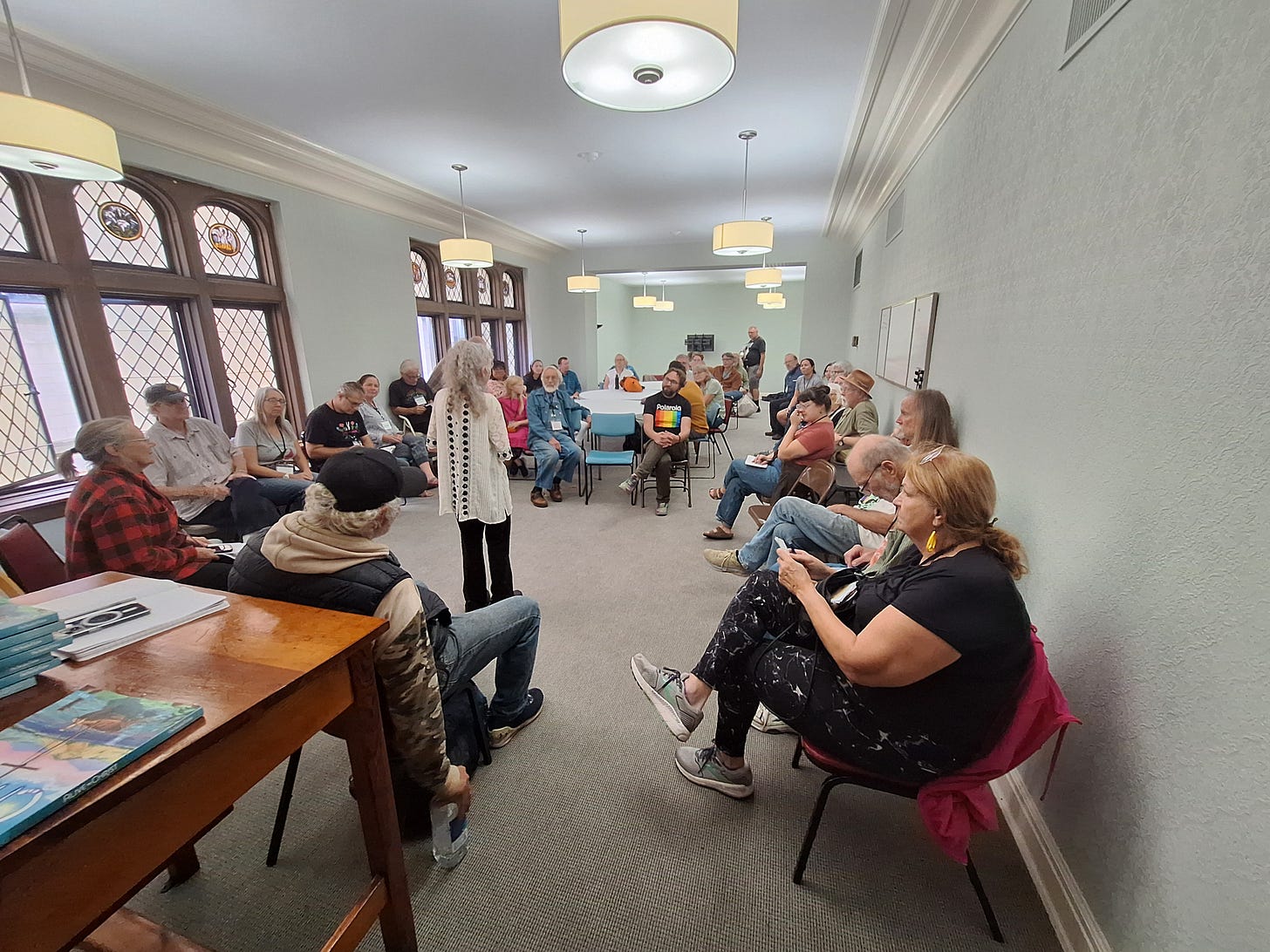
"Who are the terrorists? Is she the terrorist?" asked the mother of six-year-old Zahara at her funeral in Qana, Lebanon. "Why would your people want to do this to us? We were only trying to help people," echoed a student pharmacist in Kunduz, Afghanistan, after being maimed in a U.S. bombing.
These haunting questions, entrusted to Kathy Kelly by victims of U.S. attacks in the Middle East, opened the discussion at the national Catholic Worker gathering in Chicago. Forty people joined the roundtable, titled "War and Peace in the Middle East," on Saturday, October 5. Cassandra Dixon and Kathy Kelly welcomed the group, grounding the conversation in the voices of those who have suffered.
About 40 people participated in the discussion. Roundtable invited Kelly and Dixon to write a brief recap of the discussion; here’s an excerpt from what Kathy Kelly sent:
Now, in Gaza, Israel has used U.S. weapons to attack every hospital and in the past year has destroyed mosques, universities, roadways, tent housing for refugees, schools, and homes, rendering the environment uninhabitable. Kathy and Cassandra believe Israel’s government is intent on establishing greater Israel and because there are no consequences the Israeli government will continue flouting international law, violating human rights, and killing massive numbers of people in Gaza, the West Bank and Lebanon. As Catholic Workers, we ought to claim our right not to kill. Cassandra described her experiences accompanying families, including shepherds and children, in the Hebron hills as part of Operation Dove’s team work. Cassandra witnessed routine and vicious violence waged by settlers who were backed up by soldiers, attacking vulnerable people whom the settlers aim to displace.
Perhaps we cannot find adequate nonviolent actions commensurate to the crimes being committed. Cassandra and Kathy sent to all the participants resources regarding groups that are forming delegations to visit the West Bank. The newly formed Unarmed Civilian Protection for Palestine group is seeking participants. Representatives of this group were presenting at Maryhouse Catholic Worker on October 6th. The International Solidarity Movement is sending teams to the West Bank, and the next Community Peacemaker Team delegation will be November 7 – 17, 2025.
You can read her entire report and download six resources that were distributed at the roundtable at CatholicWorker.org.
Archbishop John Wester Urges Catholic Workers to Raise Voices for Nuclear Disarmament
The world urgently needs new conversations about the threat posed by the revival of the nuclear arms race, Archbishop John Wester of Santa Fe, New Mexico, said in a recorded talk to Catholic Workers gathered in Chicago last weekend.
“We were lulled into complacency after the Cold War ended,” Wester said. Now, though, “we are in a new nuclear arms race that is arguably more dangerous than the first, with cyber weapons, hypersonic missiles, artificial intelligence, and multiple nuclear adversaries—all amid climate change and economic instability.”
Archbishop Wester has been actively involved in promoting nuclear disarmament through various initiatives, many of which he reviewed in his talk. In January 2022, he published a pastoral letter, "Living in the Light of Christ's Peace: A Conversation Toward Nuclear Disarmament," that aimed to raise awareness of the critical importance of eliminating nuclear weapons. Later, he formed a partnership with the dioceses of Hiroshima, Nagasaki, and Seattle to promote nuclear disarmament. He has also advocated for the Treaty on the Prohibition of Nuclear Weapons (TPNW) and plans to once again participate in the UN conference for the treaty in March 2025.
Wester outlined the many conversations that have been started around the issue of nuclear disarmament, and called for more voices to join the conversation in an effort to eliminate nuclear weapons, which he called “an affront to our Creator.”
“It is my hope and prayer that this conversation can lead to verifiable, multilateral nuclear disarmament,” he said.
You can watch a video of his address or read a transcript of it at CatholicWorker.org.
For an overview of the U.S. plan to spend more than $1.7 trillion expanding its nuclear weapons arsenal, see this recent in-depth opinion piece from the New York Times, which includes photos and a map of key locations producing the upgraded weapons systems. For another multimedia overview of the new nuclear arms race and its implications, see The Brink, also by New York Times opinion writers.
Roundtable is a reader-supported publication. To receive new posts and support my work, consider becoming a free or paid subscriber.
THE ROUNDUP
Ames Romero House Catholic Worker in Ames, Iowa has been through a lot of changes this year. This summer, founder Matthew Mitchell departed the house to prepare for his discernment into diocesan seminary. David Thielen, an Ames, Iowa, native, who moved back to his hometown last year, has taken over as the house’s first executive director. Thielen and the Ames Romero House community have been spreading the word about an exciting new development at the community: a second home. “Our second home is much larger than our current location which should allow for more guests, room to serve and adding other amenities due to the size of the home,” Thielen said in an email to Roundtable Thielen and members of the community attended a local market in Ames last week to recruit volunteers, spread the word about the house’s mission, and offer some hand-crafted mugs for sale.
The Brisbane Catholic Worker participated in the Big Ride for Palestine-Australia, raising $12,000 for humanitarian projects in Palestine. The Brisbane CW contingent rode from Greenslopes to Dayboro, stopping in Samford for lunch, a distance (round-trip) of about 880 km. Support the riders here: The Big Ride for Palestine-Australia.
Margie Pfeil, a theology professor at the University of Notre Dame and one of the founders of St. Peter Claver Catholic Worker in South Bend, Indiana, talked about acknowledging the indigenous peoples of South Bend and forming a relationship with the Pokagon Band of the Potawatomi Tribe in an interview with Scholastic Magazine at Notre Dame. “It was very significant for the students to hear from the perspective of a member of the Pokagon Band what the relationship was like when Fr. Sorin arrived at what is now our campus and to hear his understanding of how the origin story of the Potawatomi people relates to our land in a very profound way,” Pfeil said. Read the interview here.
Art Laffin and Kathy Boylan of the Washington D.C. Catholic Worker are facing trial for their action in March, praying for peace and an end to the genocide in Gaza outside of Congress. 25 friends and supporters. “Since Boylan and Laffin were the only two members of the group of 13 who refused to pay a fine for their arrest, the US government decided to prosecute them,” according to the report at TRT World. Read more here.
Gabriella Ciccantelli and Leah Nawrocki (pictured above) are two of the three women hoping to start a Catholic Worker community in Grand Rapids, Michigan. They’re currently looking for a house, which they tentatively plan to name after St. Maria Goretti, the patron saint of youth—which is one of the populations they hope to serve.
“Washing Windows at the Catholic Worker” is an amazing short poem by Colleen Shaddox; read it at America magazine.
Fr. Geoffrey Gneuhs, a personal friend of Dorothy Day, was interviewed by Theresa Civantos Barber at the recent Peter Maurin Conference. Gneuhs served as chaplain to Dorothy Day and the New York Catholic Worker and offered the eulogy at her funeral in December 1980. Read the brief interview in Aleteia.
A FEW GOOD WORDS
“On Pilgrimage” by Dorothy Day, October 1972
From Day’s editorial for the October 1972 edition of The Catholic Worker.
Picking apples, pears, plums, and grapes brings in food and means the additional work of preserving and canning. There has been frost, so hundreds of green tomatoes are being wrapped and stored. What with harvesting and barn wrecking, our own houses themselves are neglected, and dirt is tramped in. The few confined to housework resent it and charge that they are doing all the work–laundry, cooking, cleaning, dishwashing. There are 70, including the dozen children, who joyfully contribute to the disorder.
But what happy activity! People get over their “mads” easily. Looking at it all with a revolutionary eye, I am happy. It means Peter Maurin’s Philosophy of Work is spreading. People, not Federal Governments are taking over in many ways all around the country.
We are sick and tired of bread and circuses, government checks, which when they are increased to take care of man’s needs, only mean rents are raised, and food costs go higher. It is rumored that Medicaid is coming to an end, protests mount. But if all this disorder of government bureaucracy will drive people to the land, to community, as it seems to be doing, there is hope for the future. We all have to learn the hard way. […]
We have to be patient with ourselves as well as others, and humble at seeing how little we can do.
Read the full editorial at Catholic Worker.org.
Roundtable covers the Catholic Worker Movement. This week’s Roundtable was produced by Jerry Windley-Daoust and Renée Roden. Art by Monica Welch at DovetailInk.
Roundtable is an independent publication not associated with the New York Catholic Worker or The Catholic Worker newspaper. Send inquiries to roundtable@catholicworker.org.






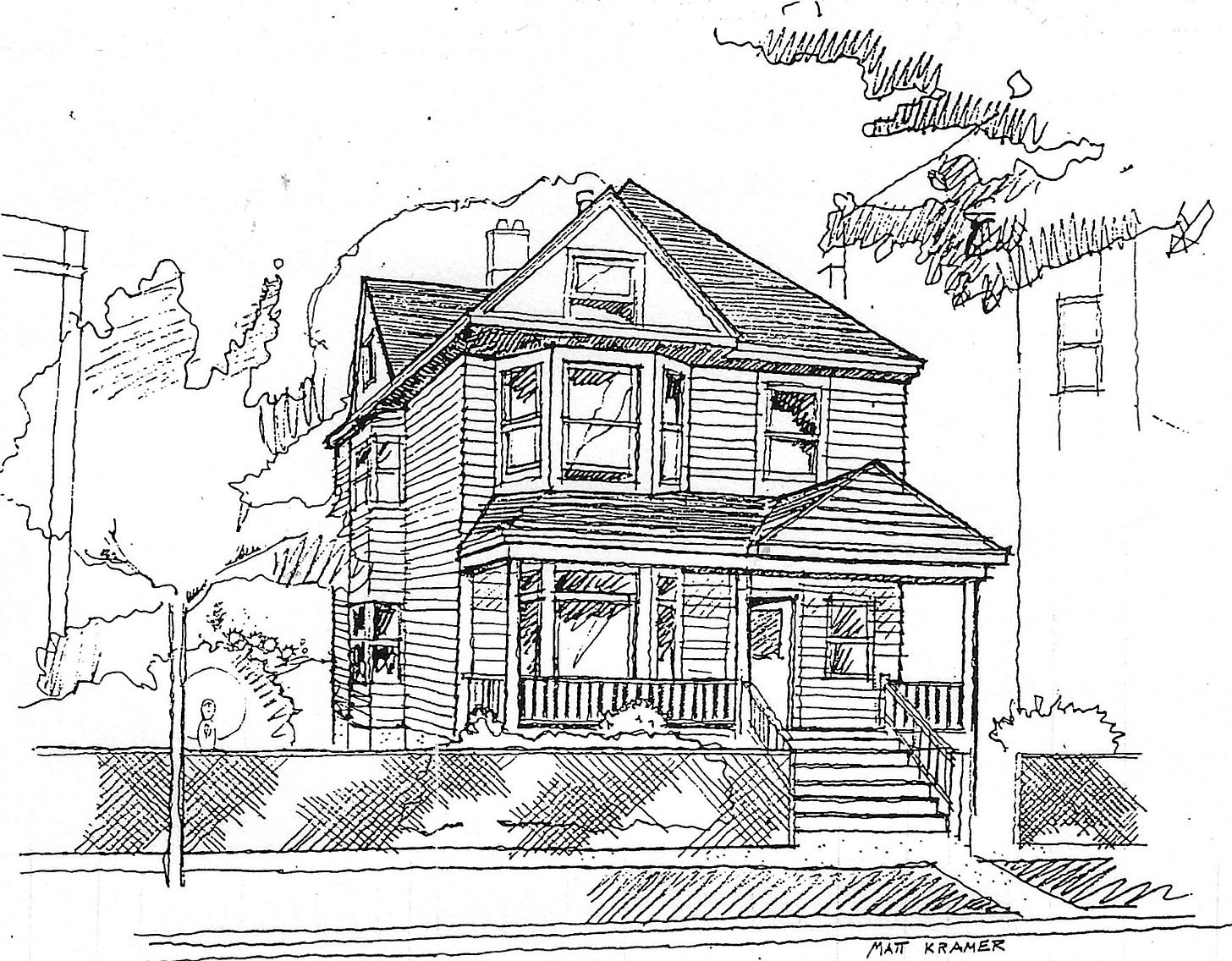

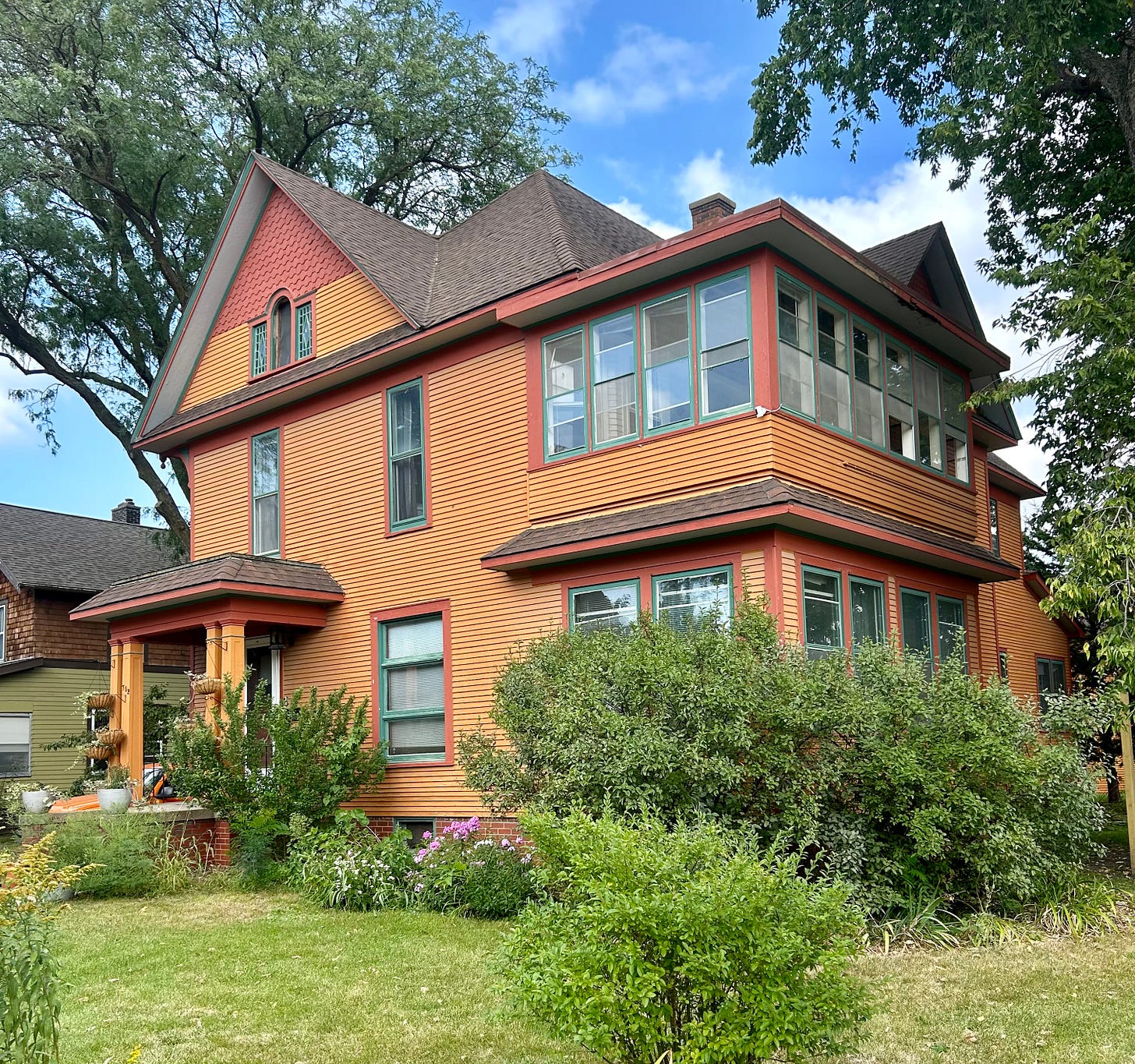
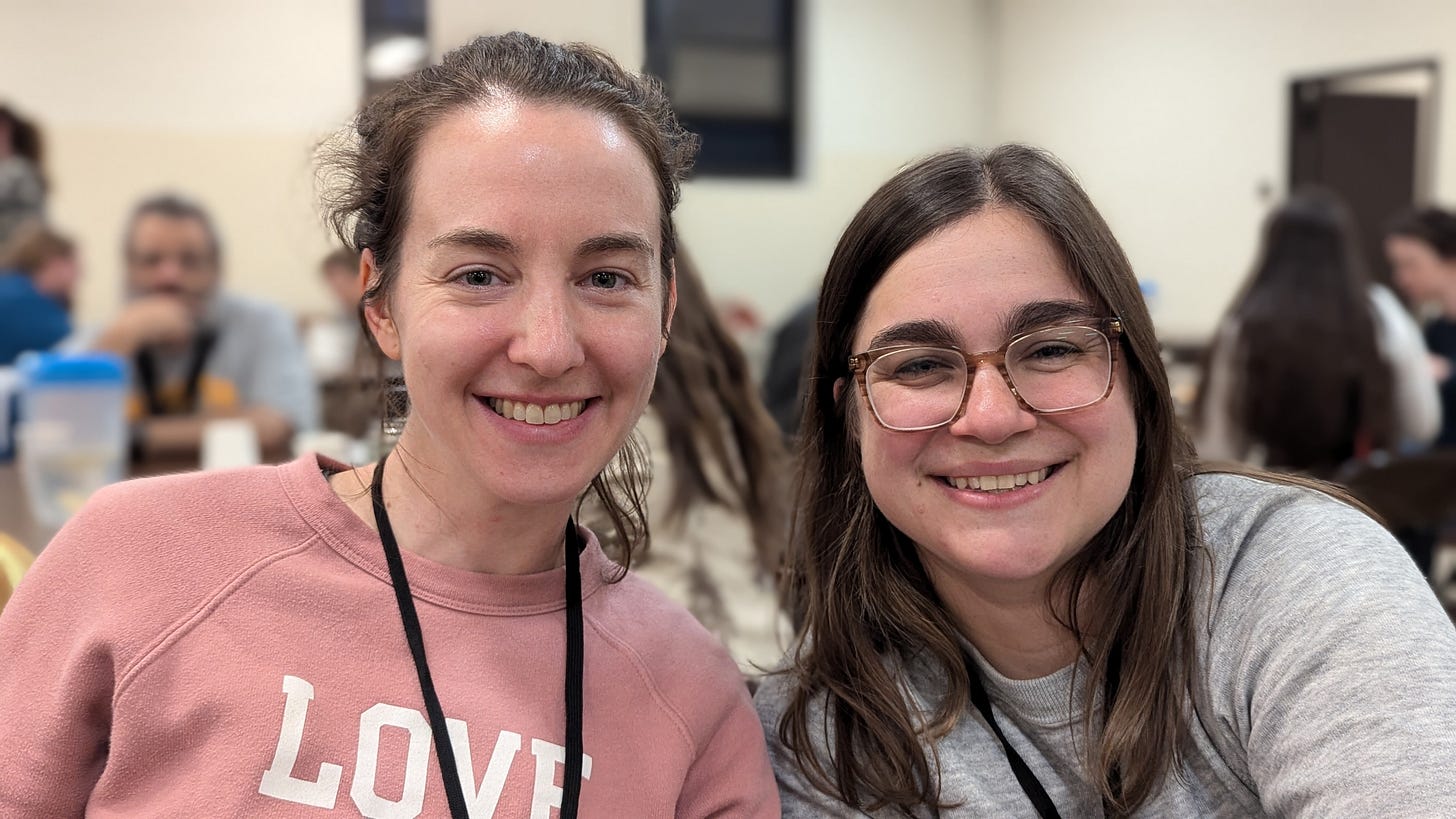


Wish I could’ve been there! Looks like a great time!
Although Israel and its knee-jerk supporters like the U.S. are responsible for much destruction in the Gaza war, you didn’t mention at all the destruction caused by Hamas and its supporters like Iran- who are equally guilty. Sounds rather one-sided. Evil isn’t a Western phenomenon. Let’s call out evil
wherever it occurs.